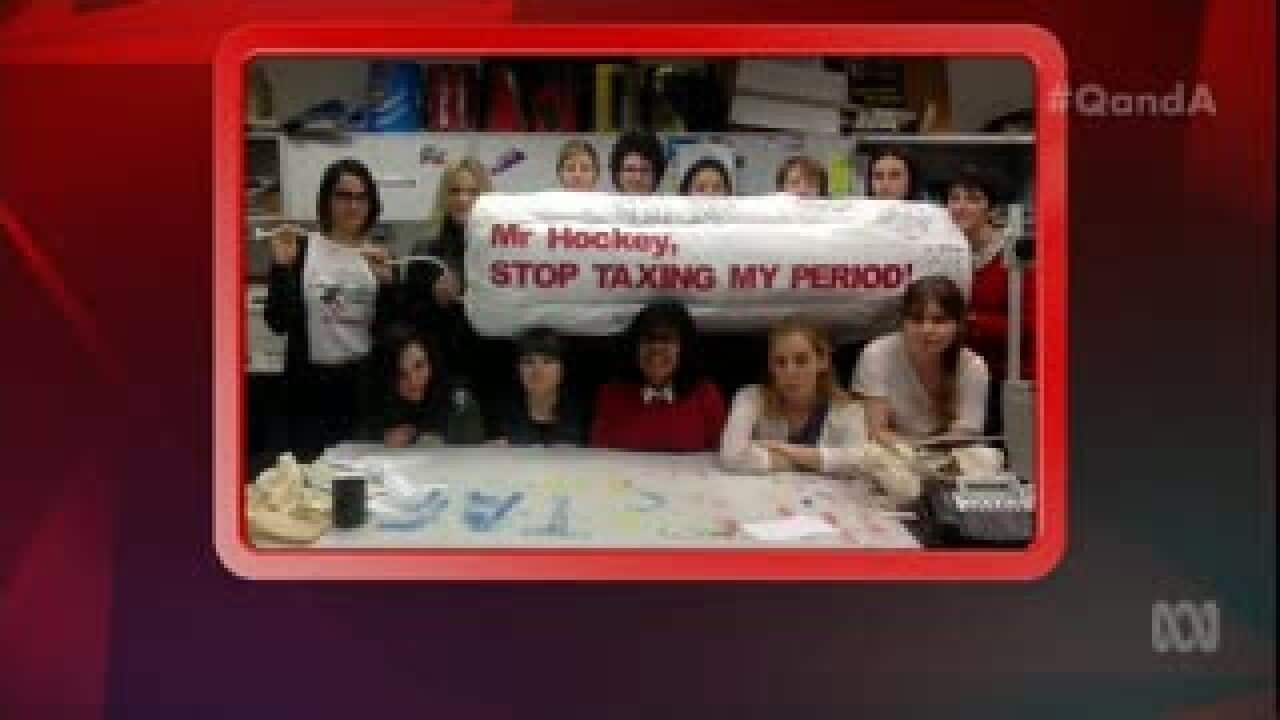Prime Minister Tony Abbott has downplayed a pledge made by his Treasurer to lobby states and territories to make tampons and other sanitary products exempt from the Goods and Services Tax (GST).
Joe Hockey made the undertaking while appearing on the ABC, taking part in a special one guest episode of the Q&A program.
Recommended Reading

Tampon tax debate flares ahead of GST review
Mr Hockey conceded that tampons and similar products were essential, telling questioner Subeta Vimalarajah that the GST should be removed.
“When it was negotiated through the Senate by the Howard Government, the Democrats had a list of things they wanted excluded and they didn't have sanitary products on it so it didn't happen,” he said.
“… I will give you this undertaking: I will raise it with the States at the next meeting of the Treasurers in July.”
However Mr Abbott hosed down expectations on Tuesday, saying changes to the GST was a matter for the states.
"It's certainly not something that this government has a plan to do," he said.
"We cannot change the GST without the states and territories. My preference is that the states and territories should make up their minds whether they want any changes to the GST."
Mr Hockey's initial pledge follows an online petition by Ms Vimalarajah, who garnered more than 92,000 signatures calling for the “unfair tampon tax” to be removed.
The Sydney University student said that half the population menstruates and “they shouldn't be financially penalised for it”.
“On average women, who make up the majority of people who use sanitary products, earn $262.50 per week less than their male counterparts, and they are also statistically at greater risk of living below the poverty line,” she said.
“Furthermore, this tax disproportionately targets those who may already be disadvantaged, that is the homeless and unemployed. So why force this underpaid, at risk and disadvantaged portion of society to pay more for basic essentials?”
Ms Vimalarajah also reasoned that GST does not apply for products such as condoms, lubricants and nicotine patches, as they were classed as “important health goods”.
The government is currently taking submissions for a GST re-think, which would feed into its policy preparation process for the 2016 election.
Share

